PLANNING
How I plan English sessions
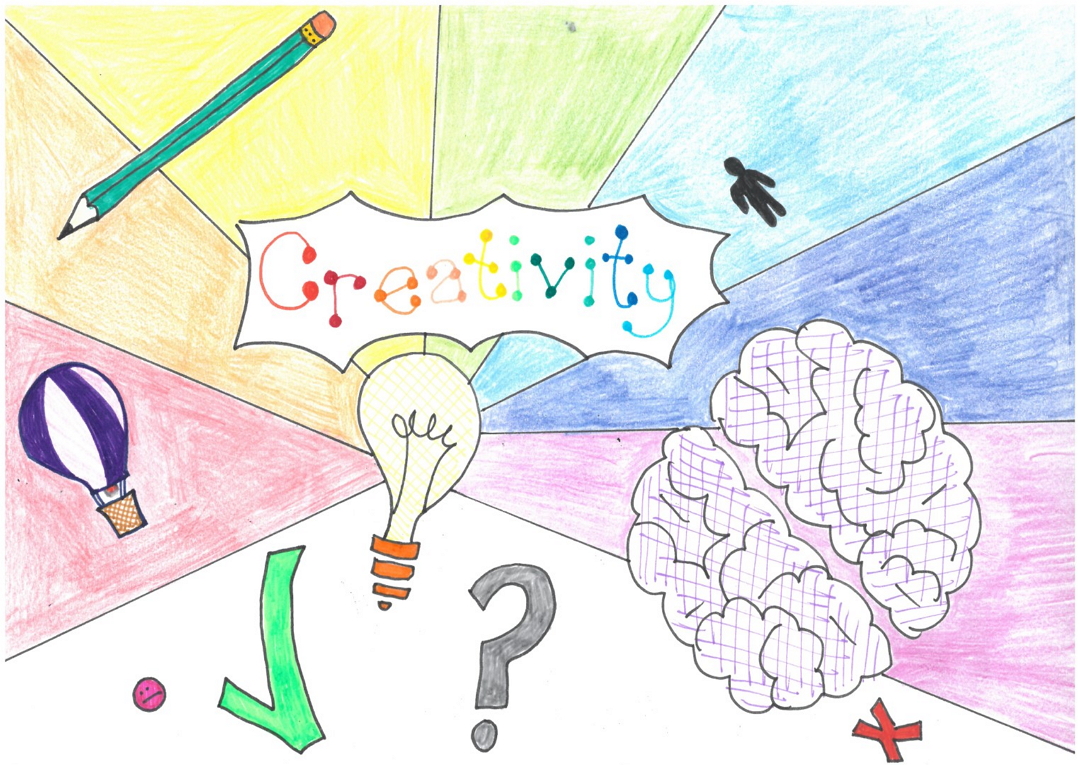
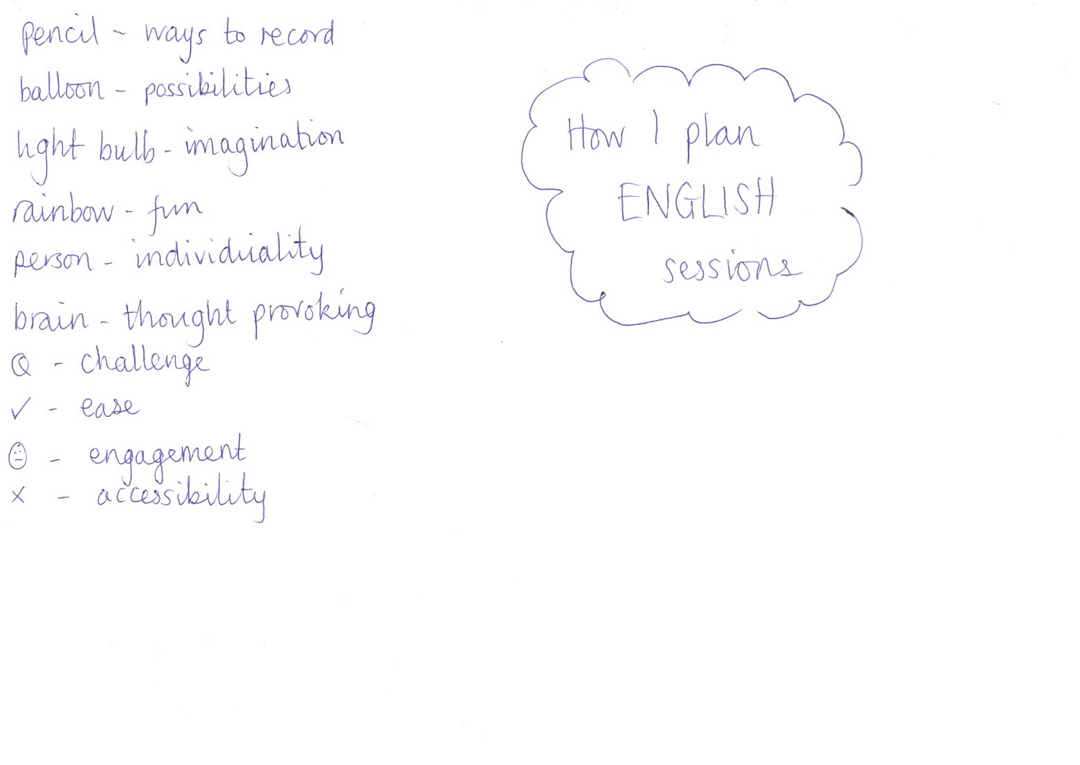
"These are all just the balls in the air when I think about planning. The little red cross, I thought about that in terms of accessibility, so in terms of the boys that can't access the things because, again, I do have a couple. I think about what I do for them and obviously in terms of that being thought provoking I put that near the brim because actually that's thought provoking to me rather than – it's not necessarily thought provoking for them but it does make me really think of, actually, I'm doing them a disservice if I'm not thinking about how easy they find it to access things.
In terms of the other things I've put on there, I've put a pencil because, again, when I'm considering planning I think about different ways to record because in terms of the children I've got there are a couple of children that hate writing and very reluctant writers [...] and they like to draw things out and annotate rather than write long pieces. They do know there is place for that and they do do it still but most of the time they sketch things and it's a few sentences with their sketch. In terms of the balloon there, I think about the possibilities, so I'll try and make sure that although I've got an end outcome that I want, that there are other possibilities and there are ways that other children can take it. So coming back to yours, a bit like your spiral of how it develops and flows, I was trying to leave some element of that."
How creative I perceive I am, where literacy is concerned
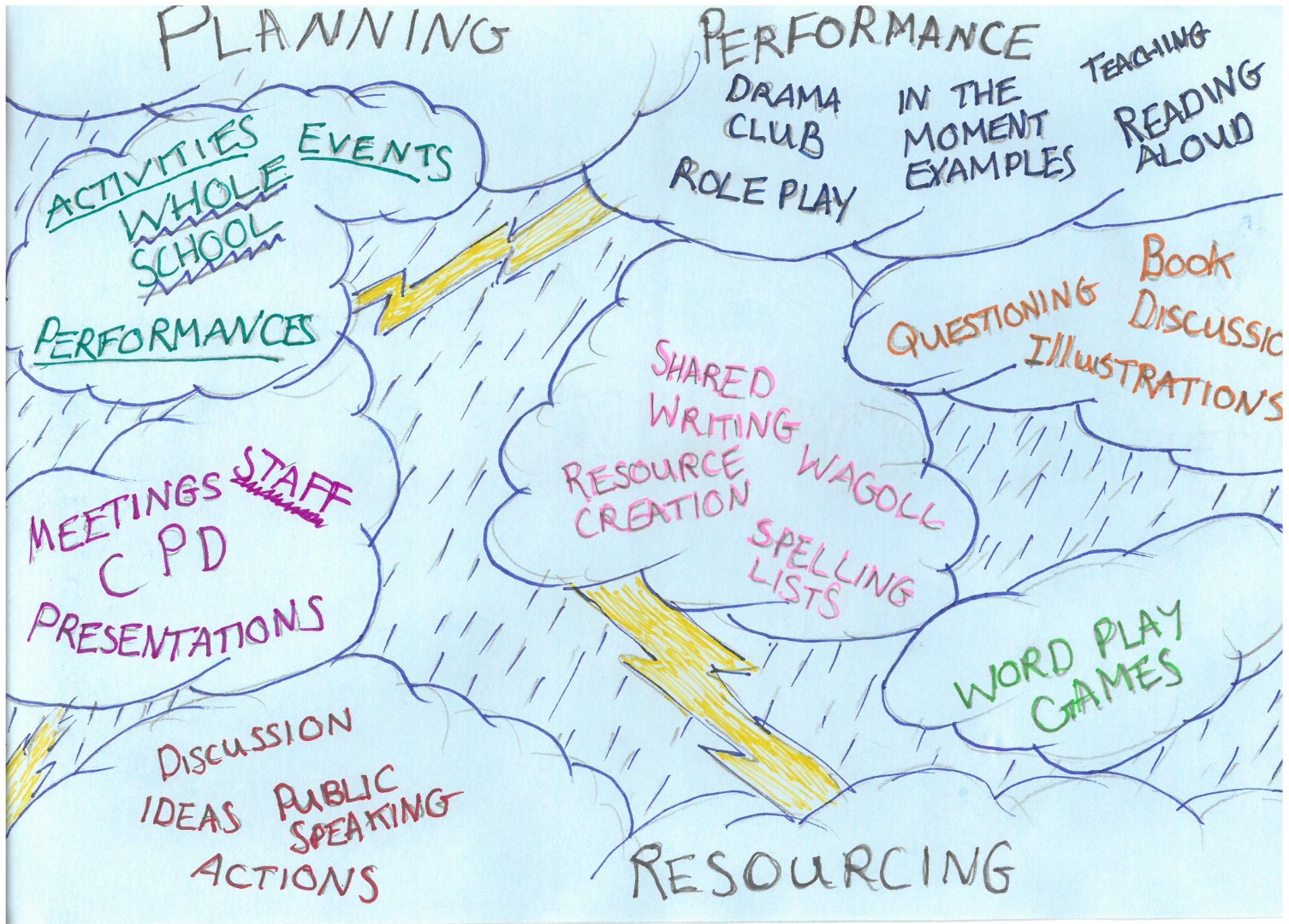
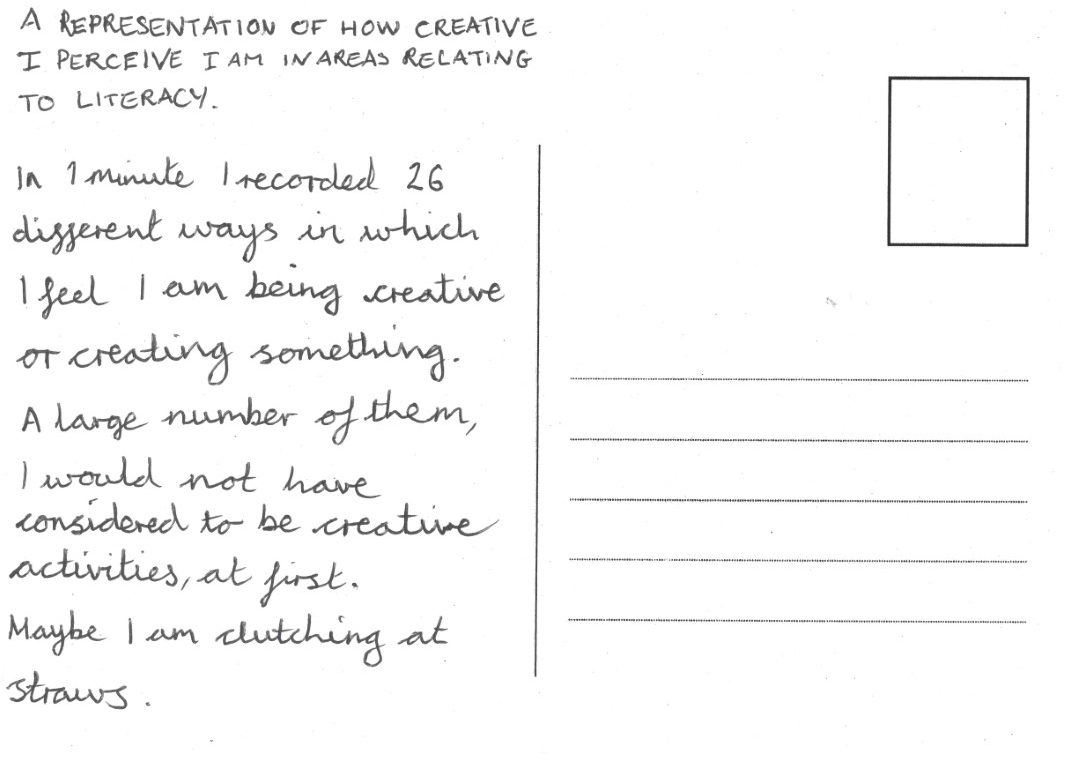
"Maybe if I could stop seeing the task as being particularly mundane. I may be a little bit like you said, that planning is one of those odd ones, we don't do a huge amount of it, we do medium-term plans that then serve us throughout the term and lesson by lesson we kind of go with it a bit and then we have that one document that we refer back to but I don't enjoy sitting down to write a medium-term plan so maybe if I can, I don't know, see a way around that mundane experience and make the experience a more creative one, what I produce would be more creative. Maybe that's the whole sense of maybe we could plan in a pictorial way ..."
Working smarter rather than harder when planning
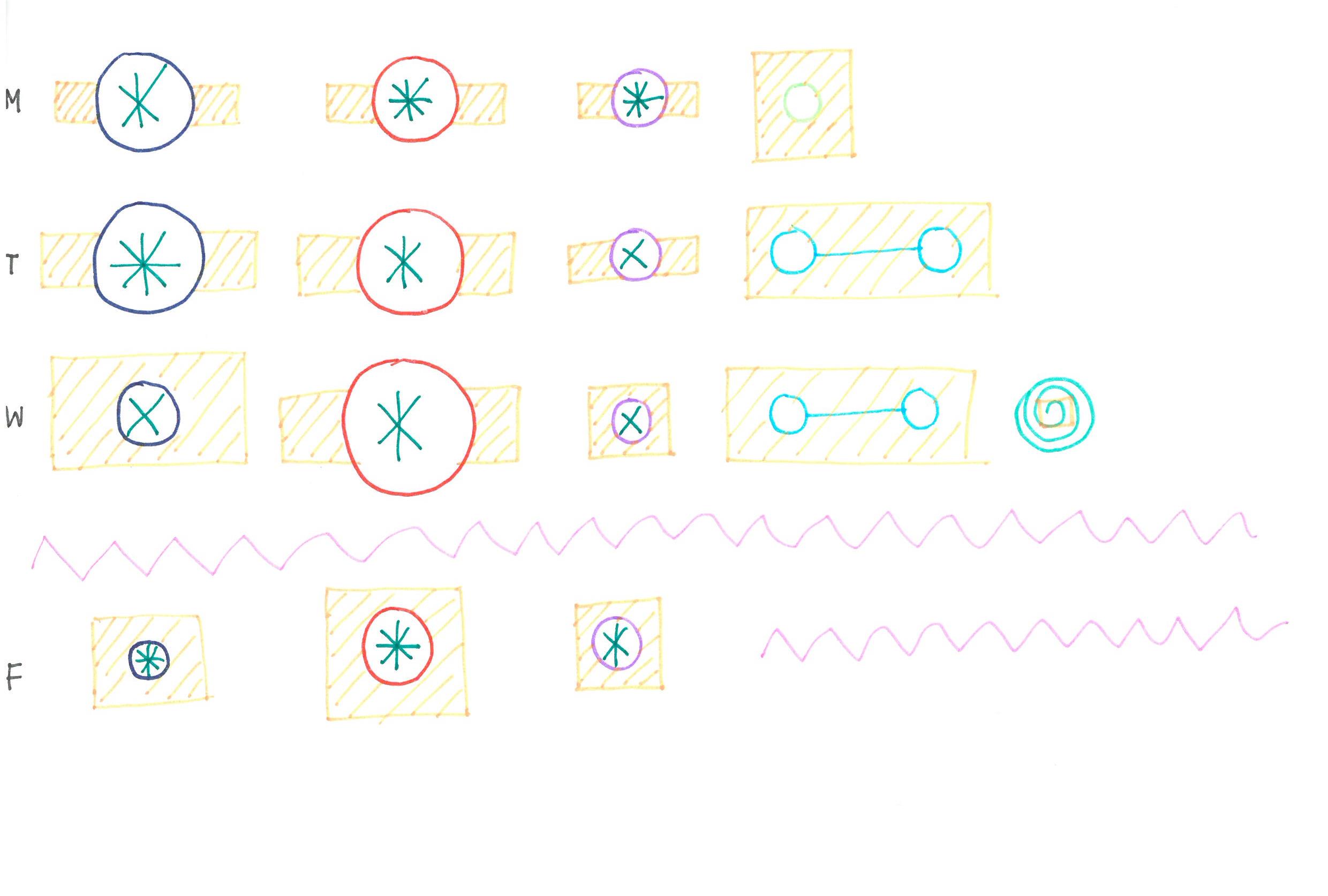
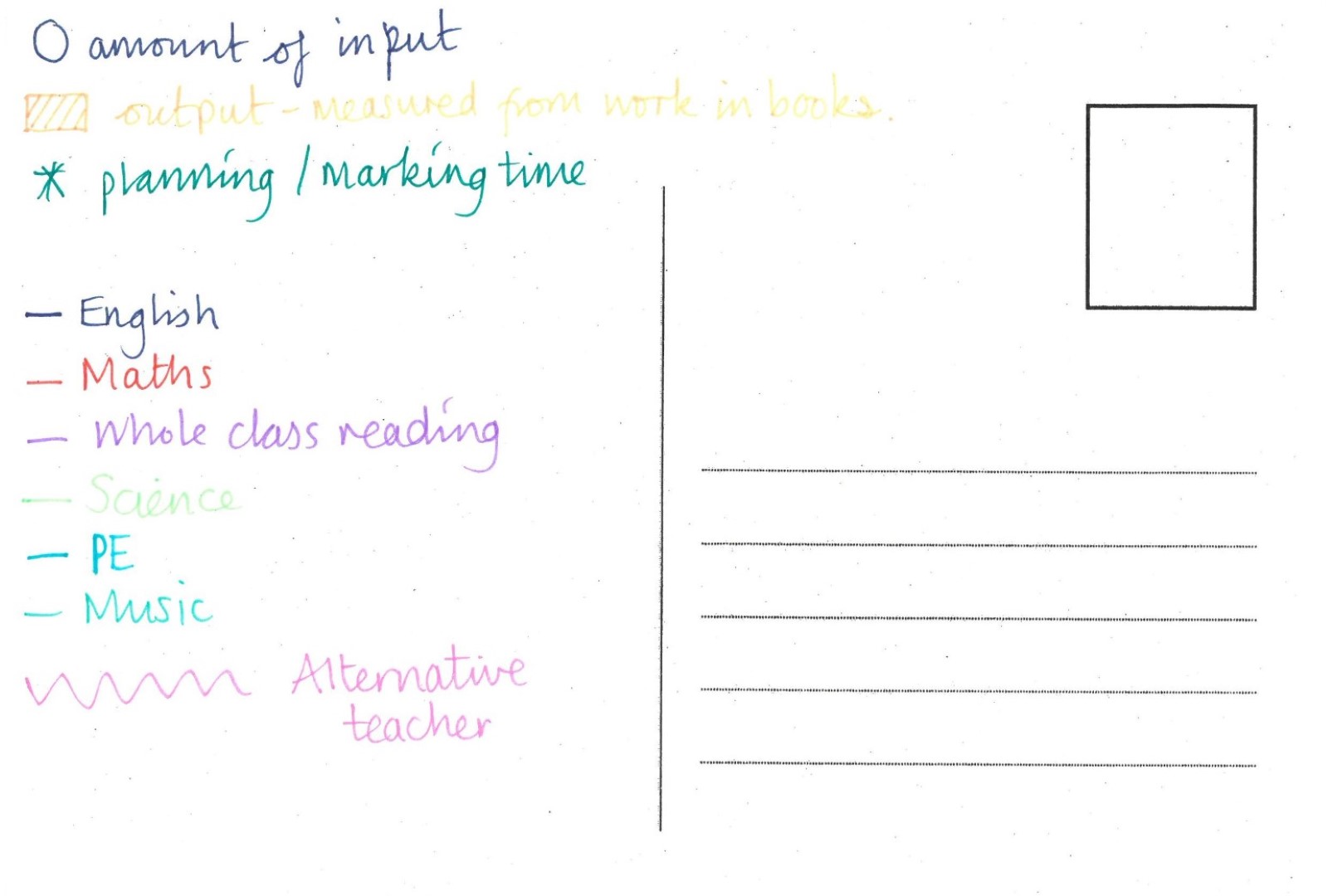
"I think the point that I was trying to make is that sometimes you don't need to plan for hours to create something amazing, because the box on Wednesday, actually the smaller the amount of input the less planning I've done around it and the more freedom I give the children to write the better the outcome is and then by Friday it just needs refining a little bit whereas because obviously the structure of the teaching sequence in our school tends to go look at a text, a lot of input about the text, pulling things out of it, it tends to not give the children the freedom to interpret it quite as much as obviously if it was less input and they did more of that. I think that speaks a lot about potentially my teaching style more than necessarily our school and having that control, making sure the children are picking up the key bits that I then want them to include in their writing."